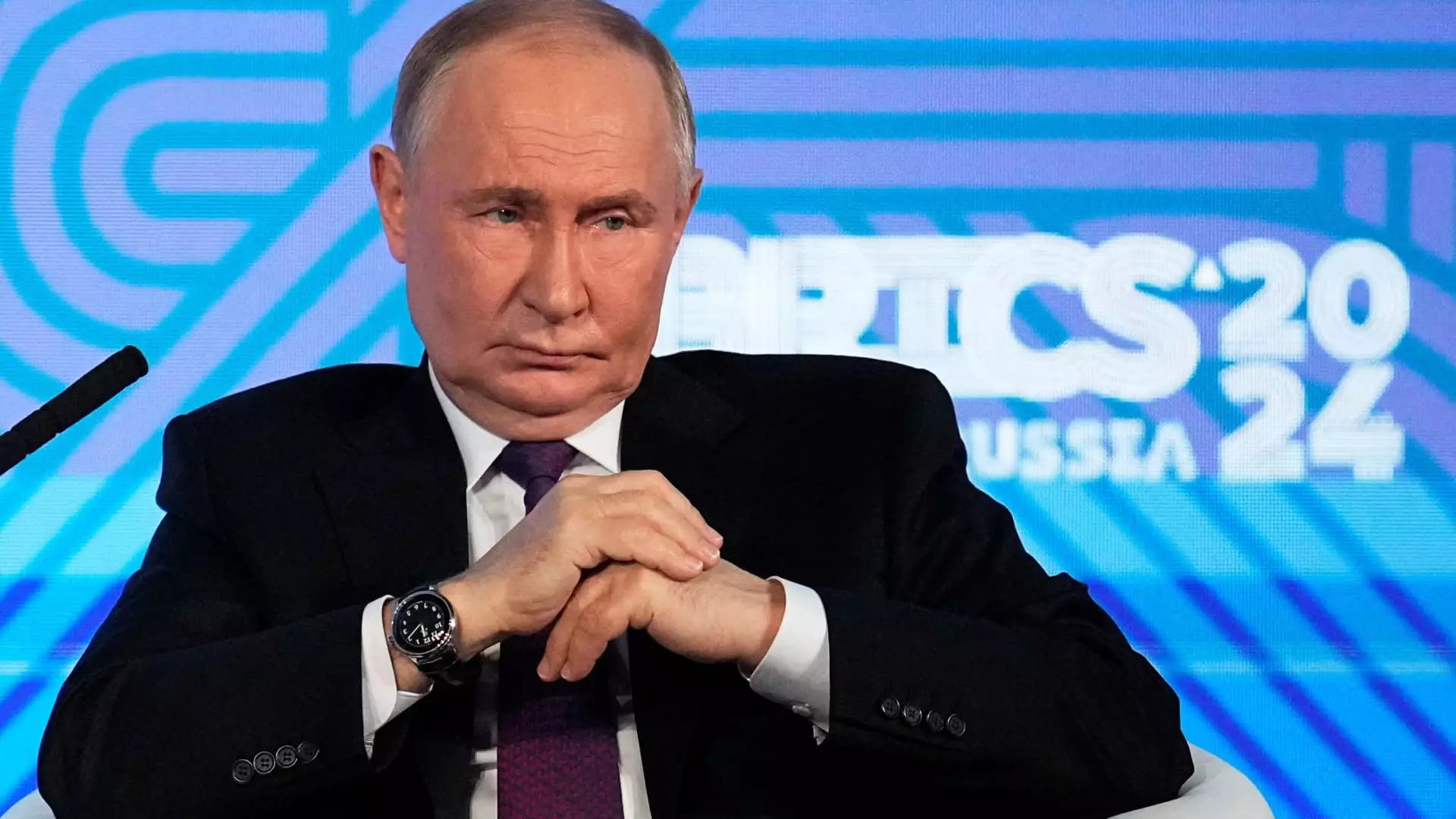The BRICS coalition, comprising Brazil, Russia, India, China, and South Africa, has been increasingly recognized as a significant player in the global economic arena. Recent developments indicate that the group is poised for even more substantial growth, especially given its expansion to include countries like Egypt, Ethiopia, Iran, and the United Arab Emirates. Experts argue that the unique composition and size of BRICS countries place them in a prime position to challenge the long-standing dominance of developed Western nations. This shift signifies a new chapter in global economics where emerging markets could potentially drive future growth.
Russian President Vladimir Putin’s vision for BRICS goes beyond mere economic collaboration; he envisions it as a political counterbalance to Western influence. By hosting the upcoming BRICS summit in Kazan from October 22-24, Putin aims to galvanize the group into a formidable bloc that can reshape international trade and financial systems. In his remarks, he emphasized that the economic trajectory of BRICS nations will increasingly become self-reliant, emphasizing “economic sovereignty” as a critical goal. The idea that BRICS can generate the bulk of global GDP growth in the near future suggests a significant paradigm shift in international economic power.
The forthcoming summit is expected to attract considerable attention, not just from member nations but also from around the globe, as Putin noted that approximately 30 nations have expressed interest in collaborating with BRICS. This openness indicates a strategic pivot from isolation towards inclusivity, particularly as the group seeks to fortify its position against Western sanctions and financial systems. Notably, the BRICS nations are discussing vital projects such as establishing a cross-border payment system and a reinsurance company, alongside collaborating on a centralized financial messaging system aimed at circumventing Western sanctions. Such initiatives highlight the group’s intent to promote economic integration and resilient financial infrastructures.
Financial Innovations and Sovereignty
One of the cornerstone discussions at the summit is how to lessen dependence on the U.S. dollar, an objective that resonates well with many BRICS members. In response to geopolitical tensions, there is a concerted effort to utilize national digital currencies for trade and investment projects, thereby enhancing economic resilience. Furthermore, while suggestions of a unified currency for BRICS are on the table, Putin described it as “premature,” indicating a more cautious approach to currency integration at this stage. Instead, the call for joint initiatives and the extensive use of national currencies reflect a pragmatic strategy to foster intra-BRICS trade and investment.
Putin’s ambition extends to urging the New Development Bank—the sole multilateral development institution created by BRICS—to prioritize investments in technology and infrastructure across the Global South. This aligns with the broader vision of establishing an alternative financial framework that could rival Western institutions like the IMF and World Bank. The emphasis on sectors such as e-commerce, artificial intelligence, and infrastructural connectivity indicates a long-term strategy aimed at promoting sustainable development through innovation.
Strategic Infrastructure Projects
Putin’s advocacy for significant transport projects, including the Arctic Sea Route and the North-to-South corridor, encapsulates the strategic importance of infrastructure in enhancing connectivity between continents. This focus not only strengthens trade links between Eurasia and Africa but also suggests a larger narrative: BRICS is positioning itself as a crucial player in global supply chains, potentially mitigating the vulnerabilities that arise from geopolitical disruptions. If realized, these initiatives could redefine logistics and transportation on a global scale, further cementing BRICS’s role as a pivotal economic force.
As the BRICS nations prepare for their upcoming summit, the implications of their collective vision and initiatives are profound. The potential for these countries to spearhead global economic growth, diminish the hegemony of traditional Western financial systems, and nurture emerging economies presents both challenges and opportunities. The future trajectory of BRICS will undoubtedly be closely watched, as it could shape the contours of global economics and international relations for years to come. Thus, the world stands at a crossroads, where the ascendance of BRICS could herald a new era in geopolitical and economic dynamics.


Leave a Reply